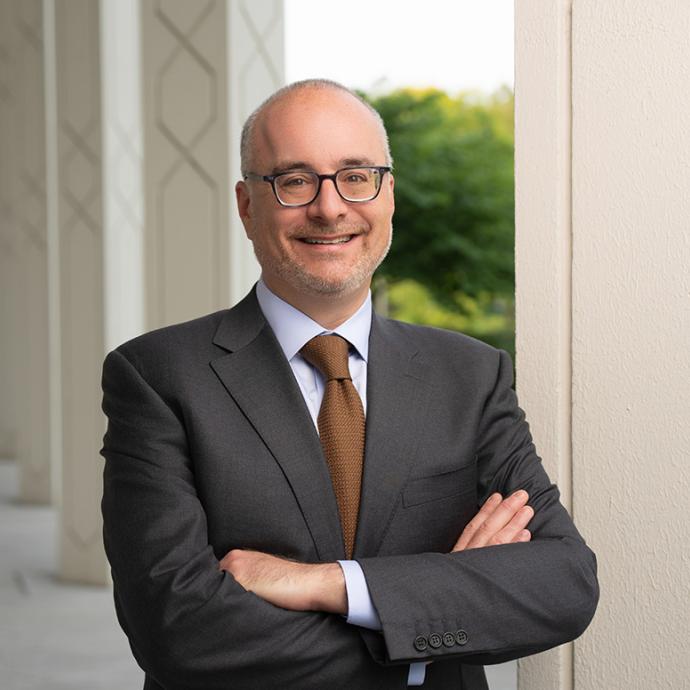Jeffrey Harvey had some self–doubts during his first year as a graduate student in physics at the California Institute of Technology.
“I was intimidated by how smart everyone was and how much they all knew,” said Harvey. He tries to remember that he now works from the other end of the graduate teaching equation.
“I try to have a certain amount of empathy for the students, and I usually bring them donuts at least once a quarter,” he said. His empathy, donuts and all–around instructional savvy have now brought him a 2010 Graduate Teaching Award from the University.
“It’s very meaningful because I do put a lot of energy into teaching and advising students, and it’s always nice to be recognized when something matters to you a lot,” Harvey said.
Harvey has taught Quantum Field Theory, Quantum Mechanics and General Relativity. Last autumn quarter he taught an Advanced Topics course on the strong interactions of physics, and attempts to describe them using mathematical techniques that grew out of string theory.
“That course is really for me the perfect example of how research and teaching influence each other, because for the last year or so I’ve been working on research projects that grew out of that class,”
Harvey said. At the start of the course, he confessed, there were some aspects of the subject matter he didn’t know much about.
“I was really just trying to stay a step ahead of the students. It really influenced my research, and I think the students enjoyed it, in part, because they had a sense that we were learning it together.”
The strong interactions are the ones that hold atomic nuclei together. “More importantly, they’re the interactions that bind quarks into many of the fundamental particles we see,” including the protons and neutrons that nuclei are composed of, Harvey said.
“People complain in particle physics that we don’t have much new data and that we’re waiting for the Large Hadron Collider, and we are. But when it comes to the strong interactions, there’s a huge amount of data,” he said. “It’s just that we don’t know how to interpret a lot of it.”
Harvey has mentored nearly 20 doctoral students. Half or more now hold academic positions, while the others have gone into the software industry, management consulting and finance. Two more, Sophia Domokos and Andrew Royston, have nearly completed their doctoral studies.
Royston recently received the Physics Department’s Gregor Wentzel Research Prize in theoretical physics and has a postdoctoral fellowship awaiting him at Rutgers University. Domokos took the Wentzel Prize last year and is headed for postdoctoral research at the Weizmann Institute in Israel.
“The job market this year was really tough, but they both got good positions,” Harvey said. “I’m pleased that they’re graduating and have good jobs, but I’m going to miss both of them because I enjoy collaborating with them.”
—Steve Koppes










 —Prof. Kunle Odunsi
—Prof. Kunle Odunsi
